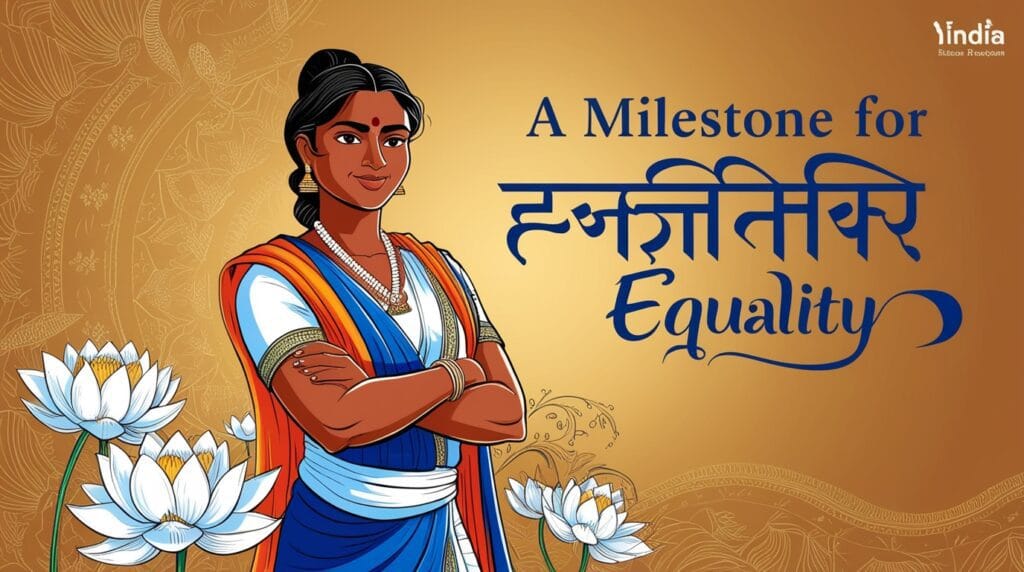Introduction
India’s long-awaited Women’s Reservation Bill, officially passed in September 2023 as the Constitution (106th Amendment) Act, aims to reserve one-third of seats in the Lok Sabha (lower house of Parliament) and state legislative assemblies for women. While hailed as a landmark step towards gender equality in politics, the bill has also ignited debates about its effectiveness, potential drawbacks, and broader implications for women’s empowerment. This article examines the bill’s provisions, its historical journey, diverse perspectives, and potential impact on women’s political participation.
Historical Background: A Long Road to Reservation
The demand for women’s reservation in Indian politics dates back to the early 20th century, with various committees and commissions recommending measures to increase women’s representation.
- Early Efforts: The first Women’s Reservation Bill was introduced in 1996 but faced numerous hurdles and political opposition.
- Subsequent Attempts: Several subsequent attempts were made to pass the bill, but it remained stalled due to political differences and concerns about its implementation.
- The 106th Amendment: After decades of debate and political maneuvering, the bill was finally passed in 2023 with broad support across party lines.
Key Components of the Women’s Reservation Bill
The bill introduces a significant change to the Indian Constitution:
- Reservation: It mandates that one-third of all seats in the Lok Sabha and state legislative assemblies be reserved for women.
- Rotation of Seats: The reserved seats will be rotated after each delimitation exercise, ensuring that different constituencies get the opportunity to elect women representatives.
- Duration: The reservation will initially be in effect for 15 years, after which it can be extended by Parliament.
- Inclusion of SC/ST Women: The bill also mandates that one-third of the seats reserved for Scheduled Castes (SC) and Scheduled Tribes (ST) be reserved for women from those communities.
Multifaceted Perspectives on the Women’s Reservation Bill
- Proponents: Supporters argue that the bill is a crucial step towards achieving gender equality in politics. They believe it will empower women, break down patriarchal barriers, and ensure that women’s voices are heard in decision-making processes.
- Critics: Opponents raise concerns about tokenism, arguing that the bill may not lead to genuine empowerment of women. They also express concerns about potential caste and class biases in the selection of women candidates.
- Women Leaders: Many women leaders across the political spectrum have welcomed the bill, while also emphasizing the need for broader societal changes to support women’s participation in politics.
Impact and Implications: Potential for Transformation
The Women’s Reservation Bill has the potential to significantly impact gender representation in Indian politics:
- Increased Representation: The bill is expected to significantly increase the number of women in Parliament and state legislatures.
- Empowerment and Role Models: It could empower women by giving them a platform to address their concerns and provide role models for future generations.
- Policy Impact: Greater representation of women could lead to policy changes that are more responsive to women’s needs and concerns.
- Social Change: The bill could contribute to changing societal attitudes towards women in leadership positions.
Current Developments and Future Outlook: Implementation Challenges
The bill’s implementation will pose several challenges:
- Delimitation Exercise: The reservation will come into effect after the next delimitation exercise, which could take several years.
- Identifying Women Candidates: Political parties will need to identify and train qualified women candidates to contest elections.
- Changing Political Culture: Efforts are needed to create a more inclusive and supportive political environment for women.
The future of women’s political participation in India will depend on how effectively these challenges are addressed and how society responds to the increased presence of women in positions of power.
Frequently Asked Questions (FAQs)
- When will the Women’s Reservation Bill come into effect? The reservation will be implemented after the next delimitation exercise, the timeline for which is yet to be determined.
- Will the bill apply to all elections in India? The bill applies to elections to the Lok Sabha and state legislative assemblies.
- How will the bill impact women’s empowerment? The bill aims to empower women by increasing their political representation and providing them a platform to address their concerns.
Conclusion
The Women’s Reservation Bill is a historic step towards greater gender equality in Indian politics. While its full impact remains to be seen, it has the potential to transform the political landscape and empower women across the country. The success of the bill will depend on the commitment of political parties, civil society organizations, and the public to create a more inclusive and equitable political system.

Sunil Garnayak is an expert in Indian news with extensive knowledge of the nation’s political, social, and economic landscape and international relations. With years of experience in journalism, Sunil delivers in-depth analysis and accurate reporting that keeps readers informed about the latest developments in India. His commitment to factual accuracy and nuanced storytelling ensures that his articles provide valuable insights into the country’s most pressing issues.



